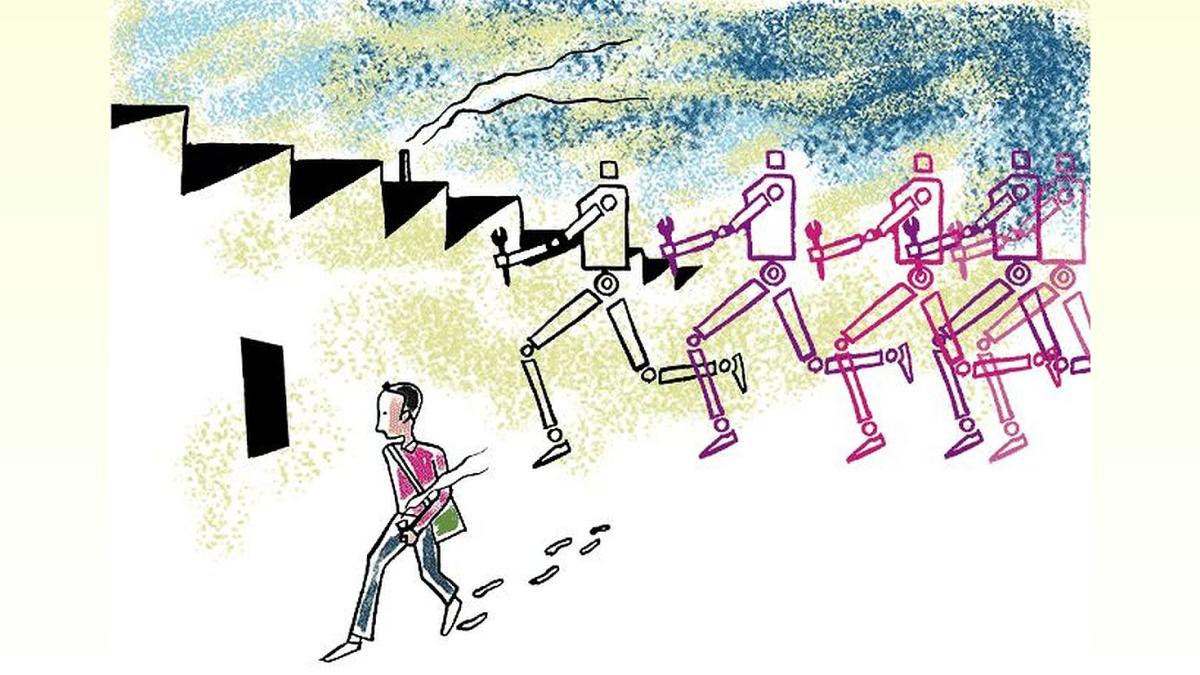WTO Extends E-commerce Duty Moratorium for 2 Years
WTO members, including India, have agreed to extend the moratorium on imposing customs duties on e-commerce trade for two more years until 2026. The decision comes after discussions with developing countries who had earlier opposed the move.

Illustration: Dominic Xavier/Rediff.com
Abu Dhabi, Mar 1 (PTI) The WTO members including India on Friday agreed to extend the moratorium on imposing customs duties on e-commerce trade for two more years, till the next ministerial conference of the World Trade Organisation in 2026, sources said.
Certain developing countries were earlier opposed to the move, but as the conference chair and UAE Minister Thani bin Ahmed Al Zeyoudi shares a healthy relation with India, it was decided to extend the moratorium, they said.
India has earlier emphasised on the need to discuss the scope of the duty moratorium as there are revenue implications because of it.
As per estimates, the potential tariff revenue losses to developing countries are about USD 10 billion every year. For India, it could be over USD 500 million annually.
The World Trade Organisation (WTO) members have agreed not to impose customs duties on electronic transmissions since 1998 and the moratorium has been periodically extended at successive ministerial conferences (MC), which is the highest decision-making body of the 166-member body.
India and South Africa on several occasions have asked the organisation to revisit the issue and have highlighted the adverse impact of the moratorium on developing countries.
India is witnessing a rise in imports of electronic transmissions, mainly of items like movies, music, video games and printed matters, some of which could fall within the scope of the moratorium.
While the profits and revenues of digital players are rising steadily, the ability of the governments to check these imports and generate additional tariff revenues is being limited because of the moratorium.
Developed countries such as the US, Australia, and Japan want an extension of the moratorium.
Certain developing countries were earlier opposed to the move, but as the conference chair and UAE Minister Thani bin Ahmed Al Zeyoudi shares a healthy relation with India, it was decided to extend the moratorium, they said.
India has earlier emphasised on the need to discuss the scope of the duty moratorium as there are revenue implications because of it.
As per estimates, the potential tariff revenue losses to developing countries are about USD 10 billion every year. For India, it could be over USD 500 million annually.
The World Trade Organisation (WTO) members have agreed not to impose customs duties on electronic transmissions since 1998 and the moratorium has been periodically extended at successive ministerial conferences (MC), which is the highest decision-making body of the 166-member body.
India and South Africa on several occasions have asked the organisation to revisit the issue and have highlighted the adverse impact of the moratorium on developing countries.
India is witnessing a rise in imports of electronic transmissions, mainly of items like movies, music, video games and printed matters, some of which could fall within the scope of the moratorium.
While the profits and revenues of digital players are rising steadily, the ability of the governments to check these imports and generate additional tariff revenues is being limited because of the moratorium.
Developed countries such as the US, Australia, and Japan want an extension of the moratorium.
You May Like To Read
TODAY'S MOST TRADED COMPANIES
- Company Name
- Price
- Volume
- Vodafone-Idea-L
- 11.59 ( -0.52)
- 59906669
- AvanceTechnologies
- 1.16 (+ 4.50)
- 31220638
- Mehai-Technology
- 1.65 ( -4.62)
- 27918947
- Sunshine-Capital
- 0.27 ( 0.00)
- 21745914
- Alstone-Textiles
- 0.27 ( -3.57)
- 20068518






